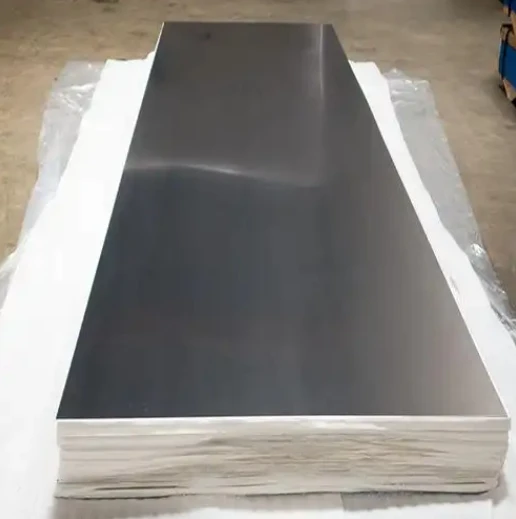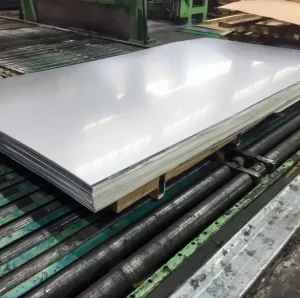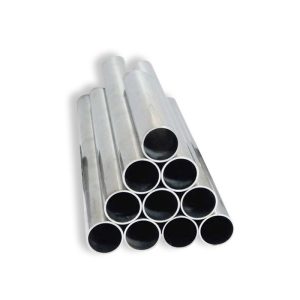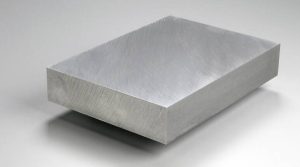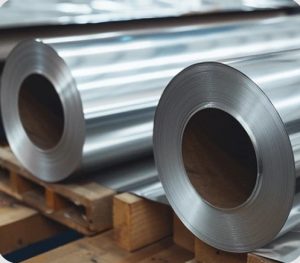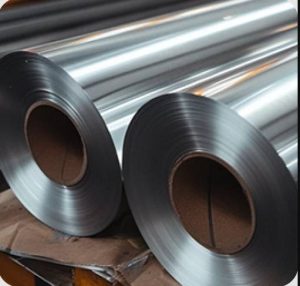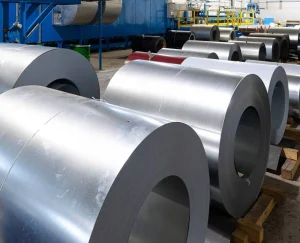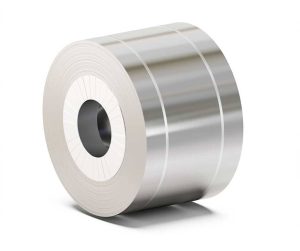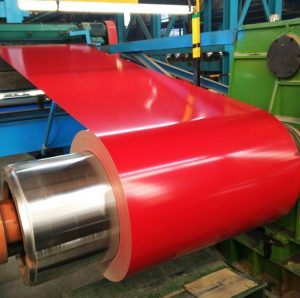Article Overview
-
Word Count: 2,650 words
-
Estimated Reading Time: 12 minutes
-
Contact Us: For product inquiries, feel free to reach out via WhatsApp or email.
Table of Contents
-
-
3.1 Anodizing
-
3.2 Powder Coating
-
3.3 Electroplating
-
3.4 PVDF Coating
-
3.7 Organic Coatings
-
1. Introduction
Aluminum is one of the most widely used metals in various industries, ranging from construction and automotive to aerospace and consumer goods. Its versatility, lightweight nature, and resistance to corrosion make it an ideal choice for many applications. However, to enhance aluminum’s durability, appearance, and performance, coatings are often applied to its surface.
In this article, we will explore 7 advanced types of coatings on aluminum, explaining their unique properties, benefits, and ideal applications. By understanding the differences between these coatings, you’ll be better equipped to choose the best option for your specific project.
2. What is Coating on Aluminum?
2.1 Definition of Aluminum Coating
A coating on aluminum refers to the process of applying a layer of material onto the aluminum surface to improve its aesthetic appeal, protection, and functional properties. These coatings not only protect the metal from corrosion but also enhance its scratch resistance, durability, and color retention. Common coating techniques include anodizing, powder coating, and electroplating, among others.
2.2 Why Aluminum Coatings Are Important
-
Corrosion Resistance: Coatings protect aluminum from environmental factors such as moisture, salt, and chemicals.
-
Aesthetic Appeal: Coatings can improve the finish and color of aluminum products, making them more visually appealing for architectural and consumer goods applications.
-
Longevity: Proper coatings extend the service life of aluminum components, reducing the need for repairs or replacements.
3. Types of Aluminum Coatings
3.1 Anodizing
3.1.1 What is Anodizing?
Anodizing is an electrochemical process that thickens the natural oxide layer on aluminum. This process not only improves corrosion resistance but also allows the aluminum to be colored in various hues. Anodized aluminum is often used in high-performance applications where appearance and durability are essential.
3.1.2 Benefits of Anodizing
-
Durability: The anodized surface is harder and more resistant to scratches compared to untreated aluminum.
-
Corrosion Resistance: The process forms a protective oxide layer that enhances corrosion resistance.
-
Aesthetic Appeal: Anodizing can add vibrant colors to aluminum, often used in architectural and decorative applications.
3.2 Powder Coating
3.2.1 What is Powder Coating?
Powder coating is a process where a dry powder is applied to the aluminum surface and then heated to form a durable, smooth coating. The powder can be made from epoxy, polyester, or polyurethane, offering a wide variety of colors and finishes.
3.2.2 Benefits of Powder Coating
-
Durability: Powder coating offers a highly durable finish that resists chipping, scratching, and fading.
-
Environmentally Friendly: It is a low-VOC process, making it an environmentally friendly coating option.
-
Aesthetic Versatility: Powder coating is available in a wide range of finishes, including matte, glossy, and metallic.
3.3 Electroplating
3.3.1 What is Electroplating?
Electroplating involves using an electric current to deposit a layer of metal, such as chromium or nickel, onto the aluminum surface. This coating improves the corrosion resistance and appearance of aluminum, making it shiny and more durable.
3.3.2 Benefits of Electroplating
-
Enhanced Appearance: Electroplated coatings can create a high glossy finish, ideal for decorative applications.
-
Corrosion Resistance: The metal coating helps improve the material’s resistance to rust and wear.
-
Durability: Electroplating provides a tough, long-lasting surface.
3.4 PVDF Coating
3.4.1 What is PVDF Coating?
PVDF (Polyvinylidene Fluoride) is a type of fluoropolymer coating that provides excellent protection against UV radiation, chemicals, and extreme temperatures. This coating is often used for architectural applications, particularly for aluminum panels and roofing systems.
3.4.2 Benefits of PVDF Coating
-
Chemical Resistance: PVDF coatings are highly resistant to harsh chemicals and weather conditions.
-
UV Resistance: The coating prevents color fading and degradation caused by UV exposure.
-
Aesthetic Finish: PVDF coatings offer a glossy finish that enhances the aesthetic appeal of aluminum components.
3.5 Polyester Coating
3.5.1 What is Polyester Coating?
Polyester coatings are organic coatings that are often used for exterior applications, such as roofing, siding, and fencing. The polyester resin provides excellent weather resistance and color retention.
3.5.2 Benefits of Polyester Coating
-
Cost-Effective: Polyester coatings are generally more affordable compared to other coating options.
-
Weather Resistance: The coating is resistant to UV rays, weathering, and moisture.
-
Color Stability: It maintains color stability for years without significant fading or discoloration.
3.6 Thermoset Coating
3.6.1 What is Thermoset Coating?
Thermoset coatings are a type of polymer coating that hardens when heated and cured. These coatings are used for aluminum products that require high durability and resilience against abrasion and extreme temperatures.
3.6.2 Benefits of Thermoset Coating
-
High-Temperature Resistance: Thermoset coatings are highly resistant to heat, making them suitable for industrial applications.
-
Durability: They provide a tough, durable surface that can withstand abrasion and scratching.
-
Chemical Resistance: Thermoset coatings offer strong protection against chemicals and environmental exposure.
3.7 Organic Coatings
3.7.1 What are Organic Coatings?
Organic coatings include materials such as paint and varnishes that can be applied to aluminum to enhance both aesthetics and protection. These coatings are typically more affordable and are used for interior applications or light-duty outdoor applications.
3.7.2 Benefits of Organic Coatings
-
Affordability: Organic coatings are generally the most cost-effective option.
-
Aesthetic Flexibility: They can be customized with various colors and finishes.
-
Ease of Application: Organic coatings are easy to apply and maintain, making them suitable for low-maintenance applications.
4. Comparing Aluminum Coatings
To better understand the advantages of each coating type, let’s compare their cost, durability, and suitability for various applications.
| Coating Type | Durability | Cost | Best Use |
|---|---|---|---|
| Anodizing | Very High | Medium | Architectural, Aerospace |
| Powder Coating | High | Medium | Outdoor, Appliances, Automotive |
| Electroplating | High | High | Decorative, Automotive, Electrical |
| PVDF Coating | Very High | High | Architectural, Roofing |
| Polyester Coating | Medium | Low to Medium | Construction, Fencing, Roofing |
| Thermoset Coating | Very High | High | Industrial, Automotive |
| Organic Coatings | Low to Medium | Low | Indoor, Low-Maintenance Applications |
Table 1. Comparison of different aluminum coatings based on durability, cost, and best uses.
5. How to Choose the Right Coating for Your Aluminum Project
5.1 Consider the Environment
The environmental conditions where the aluminum will be used play a significant role in selecting the appropriate coating. For instance, if the aluminum will be exposed to harsh weather conditions, Galvalume or PVDF coatings may be the best options due to their superior resistance to UV rays and corrosion.
5.2 Evaluate Durability Needs
If the application requires high abrasion resistance or heat resistance, coatings like Thermoset or Powder Coating will provide the necessary protection. For more decorative applications, Electroplating or Anodizing may be ideal.
5.3 Budget Considerations
Organic coatings are a budget-friendly option for indoor applications, while PVDF or Powder Coatings are higher-end solutions for long-term, outdoor projects where both aesthetics and performance are critical.
6. Frequently Asked Questions (FAQs)
Q1: What is the difference between anodizing and powder coating?
A1: Anodizing is an electrochemical process that thickens the oxide layer on aluminum for improved corrosion resistance. Powder coating, on the other hand, involves applying a dry powder that is cured under heat, providing a durable, aesthetically versatile finish.
Q2: Is PVDF coating better than polyester coating?
A2: Yes, PVDF coatings offer superior UV resistance and chemical resistance, making them ideal for architectural and high-performance applications, while polyester coatings are more cost-effective and suitable for general construction use.
Q3: How long does anodizing last on aluminum?
A3: Anodizing can last 10-20 years or more, depending on the environmental conditions. It provides excellent durability and resistance to corrosion, especially in high-humidity or coastal areas.
Q4: Can powder coating be applied to all aluminum surfaces?
A4: Yes, powder coating can be applied to most aluminum surfaces. However, the surface needs to be properly pretreated to ensure strong adhesion and a smooth finish.
Q5: How does electroplating compare to anodizing?
A5: Electroplating involves depositing a metal coating (like chrome or nickel) onto aluminum for enhanced appearance and corrosion resistance. Anodizing forms a thicker oxide layer on the aluminum itself, which is harder and more resistant to wear.
Q6: What is the best coating for outdoor aluminum?
A6: For outdoor applications, PVDF coatings or Powder Coatings are ideal due to their high corrosion resistance and UV protection. These coatings maintain their appearance and performance in harsh weather conditions.
Conclusion
Choosing the right coating for your aluminum projects is essential for ensuring durability, aesthetic appeal, and performance. Whether you choose Anodizing, Powder Coating, or PVDF, each coating has its own set of benefits tailored to specific applications. By understanding the properties of these advanced coatings, you can select the ideal solution for your needs, ensuring long-lasting results. If you’re looking for top-quality aluminum coatings, feel free to contact Luokaiwei Steel Company for expert advice and premium materials.


